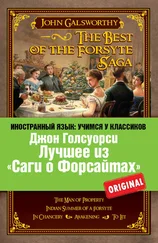Having formed this resolution, I immediately set to work to accomplish it, I might possibly have been induced to wax cool upon it afterwards, or perhaps to keep weighing the pros and cons in my mind till the latter overbalanced the former, and I was driven to relinquish the project altogether, or delay the execution of it to an indefinite period, had not something occurred to confirm me in that determination, to which I still adhere, which I still think I did well to form, and shall do better to execute.
Since Lord Lowborough’s departure I had regarded the library as entirely my own, a secure retreat at all hours of the day. None of our gentlemen had the smallest pretensions to a literary taste, except Mr. Hargrave; and he, at present, was quite contented with the newspapers and periodicals of the day. And if, by any chance, he should look in here, I felt assured he would soon depart on seeing me, for, instead of becoming less cool and distant towards me, he had become decidedly more so since the departure of his mother and sisters, which was just what I wished. Here, then, I set up my easel, and here I worked at my canvas from daylight till dusk, with very little intermission, saving when pure necessity, or my duties to little Arthur, called me away: for I still thought proper to devote some portion of every day exclusively to his instruction and amusement. But, contrary to my expectation, on the third morning, while I was thus employed, Mr. Hargrave did look in, and did not immediately withdraw on seeing me. He apologized for his intrusion, and said he was only come for a book; but when he had got it, he condescended to cast a glance over my picture. Being a man of taste, he had something to say on this subject as well as another, and having modestly commented on it, without much encouragement from me, he proceeded to expatiate on the art in general. Receiving no encouragement in that either, he dropped it, but did not depart.
‘You don’t give us much of your company, Mrs. Huntingdon,’ observed he, after a brief pause, during which I went on coolly mixing and tempering my colours; ‘and I cannot wonder at it, for you must be heartily sick of us all. I myself am so thoroughly ashamed of my companions, and so weary of their irrational conversation and pursuits – now that there is no one to humanize them and keep them in check, since you have justly abandoned us to our own devices – that I think I shall presently withdraw from amongst them, probably within this week; and I cannot suppose you will regret my departure.’
He paused. I did not answer.
‘Probably,’ he added, with a smile, ‘your only regret on the subject will be that I do not take all my companions along with me. I flatter myself, at times, that though among them I am not of them; but it is natural that you should be glad to get rid of me. I may regret this, but I cannot blame you for it.’
‘I shall not rejoice at your departure, for you can conduct yourself like a gentleman,’ said I, thinking it but right to make some acknowledgment for his good behaviour; ‘but I must confess I shall rejoice to bid adieu to the rest, inhospitable as it may appear.’
‘No one can blame you for such an avowal,’ replied he gravely: ‘not even the gentlemen themselves, I imagine. I’ll just tell you,’ he continued, as if actuated by a sudden resolution, ‘what was said last night in the dining-room, after you left us: perhaps you will not mind it, as you’re so very philosophical on certain points,’ he added with a slight sneer. ‘They were talking about Lord Lowborough and his delectable lady, the cause of whose sudden departure is no secret amongst them; and her character is so well known to them all, that, nearly related to me as she is, I could not attempt to defend it. Curse me!’ he muttered, par parenthèse [216], ‘if I don’t have vengeance for this! If the villain must disgrace the family, must he blazon it abroad to every low-bred knave of his acquaintance? I beg your pardon, Mrs. Huntingdon. Well, they were talking of these things, and some of them remarked that, as she was separated from her husband, he might see her again when he pleased.’
‘“Thank you,” said he; “I’ve had enough of her for the present: I’ll not trouble to see her, unless she comes to me.”
‘“Then what do you mean to do, Huntingdon, when we’re gone?” said Ralph Hattersley. “Do you mean to turn from the error of your ways, and be a good husband, a good father, and so forth; as I do, when I get shut of you and all these rollicking devils you call your friends? I think it’s time; and your wife is fifty times too good for you, you know – ”
‘And he added some praise of you, which you would not thank me for repeating, nor him for uttering; proclaiming it aloud, as he did, without delicacy or discrimination, in an audience where it seemed profanation to utter your name: himself utterly incapable of understanding or appreciating your real excellences. Huntingdon, meanwhile, sat quietly drinking his wine, – or looking smilingly into his glass and offering no interruption or reply, till Hattersley shouted out, – “Do you hear me, man?”
‘“Yes, go on,” said he.
‘“Nay, I’ve done,” replied the other: “I only want to know if you intend to take my advice.”
‘“What advice?”
‘“To turn over a new leaf, you double-dyed scoundrel,” shouted Ralph, “and beg your wife’s pardon, and be a good boy for the future.”
‘“My wife! what wife? I have no wife,” replied Huntingdon, looking innocently up from his glass, “or if I have, look you, gentlemen: I value her so highly that anyone among you, that can fancy her, may have her and welcome: you may, by Jove, and my blessing into the bargain!”
‘I – hem – someone asked if he really meant what he said; upon which he solemnly swore he did, and no mistake. What do you think of that, Mrs. Huntingdon?’ asked Mr. Hargrave, after a short pause, during which I had felt he was keenly examining my half-averted face.
‘I say,’ replied I, calmly, ‘that what he prizes so lightly will not be long in his possession.’
‘You cannot mean that you will break your heart and die for the detestable conduct of an infamous villain like that!’
‘By no means: my heart is too thoroughly dried to be broken in a hurry, and I mean to live as long as I can.’
‘Will you leave him then?’
‘Yes.’
‘When: and how?’ asked he, eagerly.
‘When I am ready, and how I can manage it most effectually.’
‘But your child?’
‘My child goes with me.’
‘He will not allow it.’
‘I shall not ask him.’
‘Ah, then, it is a secret flight you meditate! but with whom, Mrs. Huntingdon?’
‘With my son: and possibly, his nurse.’
‘Alone – and unprotected! But where can you go? what can you do? He will follow you and bring you back.’
‘I have laid my plans too well for that. Let me once get clear of Grassdale, and I shall consider myself safe.’
Mr. Hargrave advanced one step towards me, looked me in the face, and drew in his breath to speak; but that look, that heightened colour, that sudden sparkle of the eye, made my blood rise in wrath: I abruptly turned away, and, snatching up my brush, began to dash away at my canvas with rather too much energy for the good of the picture.
‘Mrs. Huntingdon,’ said he with bitter solemnity, ‘you are cruel – cruel to me – cruel to yourself.’
‘Mr. Hargrave, remember your promise.’
‘I must speak: my heart will burst if I don’t! I have been silent long enough, and you must hear me!’ cried he, boldly intercepting my retreat to the door. ‘You tell me you owe no allegiance to your husband; he openly declares himself weary of you, and calmly gives you up to anybody that will take you; you are about to leave him; no one will believe that you go alone; all the world will say, “She has left him at last, and who can wonder at it? Few can blame her, fewer still can pity him; but who is the companion of her flight?” Thus you will have no credit for your virtue (if you call it such): even your best friends will not believe in it; because it is monstrous, and not to be credited but by those who suffer, from the effects of it, such cruel torments that they know it to be indeed reality. But what can you do in the cold, rough world alone? you, a young and inexperienced woman, delicately nurtured, and utterly – ’
Читать дальше
Конец ознакомительного отрывка
Купить книгу












